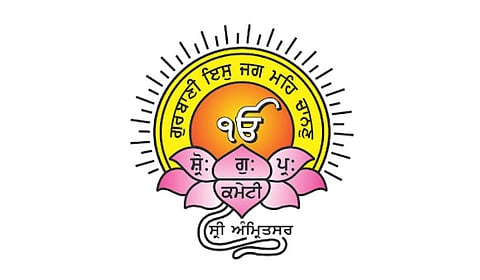

CHANDIGARH: In a rare show of interfaith solidarity, the Akal Takht, the highest temporal seat of Sikhs, and the Shiromani Gurdwara Parbandhak Committee (SGPC), known as the mini parliament of Sikhs, have come together to oppose the Waqf (Amendment) Bill, 2025, calling it a direct interference in the affairs of minority communities.
Leaders from the Muslim community have also extended their support, vowing to strengthen communal harmony and confront shared challenges.
The SGPC stated that the Bill represents direct interference by the central government in minority-related matters. SGPC president Harjinder Singh Dhami said, “It is a direct interference by the Centre Government in minority-related matters.”
He asserted that the Bill was introduced without consulting the concerned parties, which has led to significant controversy. Dhami remarked that it appears the government intends to curtail minority rights and administer matters according to its own agenda.
He emphasised that the SGPC has always been committed to protecting the rights of minorities and opposes any decision that goes against minority communities.
Dhami also pointed out that the Centre Government has previously attempted to suppress minorities through measures such as the introduction of the Uniform Civil Code, which directly interfered with the personal laws and religious beliefs of various communities.
Similarly, the Agniveer recruitment scheme, instead of direct recruitment into the Indian Army, is an attempt to take away the reservation rights of minorities. Another example is the government’s imposition of mandatory helmet-wearing rules for Sikh soldiers, which faced widespread opposition.
He stated that the government should refrain from interfering in minority affairs without consulting them. He stressed that minority communities have the full right to preserve their heritage and religious institutions, and laws like the Waqf (Amendment) Bill are an attempt to weaken these rights.
Akal Takht’s acting Jathedar Kuldip Singh Gargaj said, “This country belongs to everyone and every community has the right to live here with happiness.” He questioned, “Why, when it comes to suppressing minority rights, bills are passed swiftly, but where are the bills to protect minority rights?”
He stated that the dignity and respect of all communities should be preserved and no one has the right to deprive anyone of their rights. He emphasised that no action should make any community feel that their rights are being taken away.
A delegation of the Jamiat Ulema-i-Hind met Akal Takht Jathedar Giani Kuldip Singh Gargaj in Amritsar on Friday to discuss matters related to the Waqf Bill, which has been passed by Parliament.
They discussed the common challenges faced by both communities, deepening interfaith cooperation, and reinforcing communal harmony between the Sikh and Muslim communities.
Gargaj said the meeting with the members of the more-than-century-old organisation of Muslim scholars was aimed at deepening interfaith cooperation, addressing common challenges, and reinforcing communal harmony between the Sikh and Muslim communities.
A member of the Jamiat delegation, Javed Siddiqui, said, “For years, we have maintained close ties with Akal Takht Sahib to ensure that any emerging issues are resolved collectively and peacefully. Our goal is to protect the rights of all communities.”
The last time major Sikh bodies and activists, despite strong differences among themselves, appeared on the same page to strongly oppose a bill was when the Aam Aadmi Party-led Punjab government pushed through an amendment in the Sikh Gurdwara Act, 1925, for the free telecast of Gurbani Kirtan from Darbar Sahib, Amritsar.
Their main objection was that the Punjab government was amending the Gurdwara Act on its own without consulting the SGPC or Sikh bodies, which would set the "wrong precedent" for future governments amending the Act further according to their own wishes and opening the way for interference in Sikh religious and institutional affairs.
The Sikh community also opposed the amendment by the Maharashtra government to the Nanded Sikh Gurdwara Sachkhand Sri Hazur Abchalnagar Sahib Board Act, 1956, in February 2024, which effectively allowed the government to take complete control over deciding who would be president of the 17-member board and to have a majority of members of its choice.